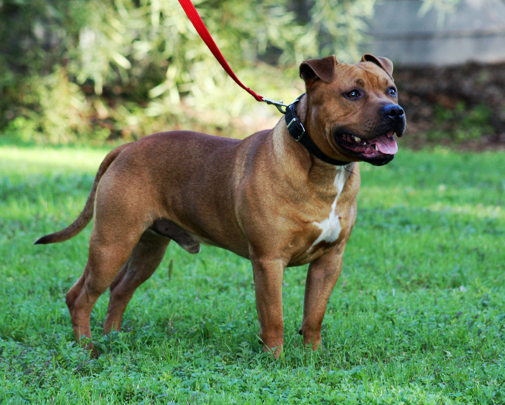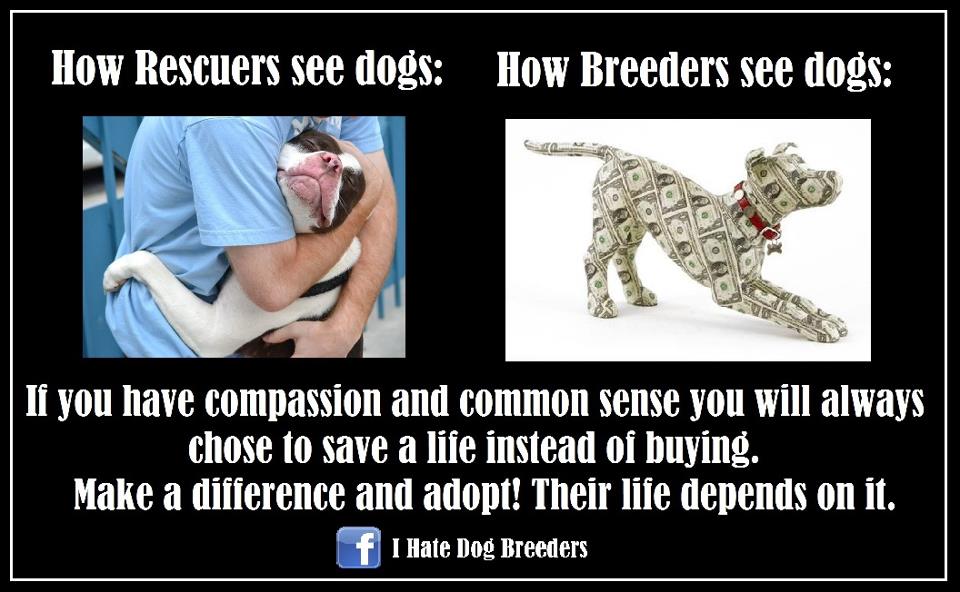The SA Story (Again)

After hearing the ‘results’ of the Select Committee on Companion Animal Welfare in SA, I was hugely disappointed in the process and the recommendations. However, I was pleased to hear nothing further about it (it came out July last year!).
Until now.
A few articles (one | two | three) have come out quoting Ian Hunter (politician), Tammy Franks (politician), Tim Vasuedeva (RSPCA CEO), Steven Marshall (politician), and Jay Weatherill (politician).
The hot ideas are compulsory desexing (or just desexing puppies in pet shops), a code of practice, and a breeder licensing scheme, with some extra legislation thrown in for good measure. It’s not a surprise that this is mostly bad news, considering the spurious nature of the original Select Committee report.
Compulsory Desexing
The articles seem to be looking at both compulsory desexing, and compulsory desexing of all dogs sold in pet shops. The narrator in the first article describes the community as ‘divided’.
Compulsory Desexing of Petshop Puppies
Tammy Franks, in particular, supports the suggestion that all puppies from pet shops should be desexed.
Tim Vasudeva, from the RSPCA, says, “We’ve been desexing puppies between 3-4 months for years and years and we haven’t had any problems.”
The first article claims that the government will look at compulsory desexing of dogs sold in pet shop in light of a Select Committee’s report. While the report made many poor recommendations, desexing of dogs in pet shops before sale was not one of them! False reporting!
The problem with this is: We are desexing very young puppies and there is evidence that there are harms associated with desexing when it is done at a young age. These harms go beyond anaesthetic risks and immediate recovery (which is what Tim is referring to) and is more about long term acquisition of health problems including cancer. (You can read a recent study on golden retrievers, or a recent study on vizslas to learn more about this.)
Further, what is the point of this suggested legislation? Why should all puppies be desexed before sale? Especially because of the long term health risks?
If you wanted to get me on side with this suggestion, I would be more inclined to support the sterilisation of puppies before sale (including tubal ligation and vasectomies, that aren’t known to have these long-term health outcomes). However, I’d still be asking what the point of this was – surely there’s bigger issues for us to be dealing with.
Compulsory Desexing of Everything
Tim Vasudeva, from the RSPCA, says that the AVA’s research shows that desexed dogs are 2.6 times less likely to bite. This is not true: the AVA refers to others’ research, using 23 year old data, which suggests desexed dogs are 2.6 times less likely to bite.
Tim Vasudeva spoke about how desexing could be beneficial – in reducing wandering and hormone-driven behaviours and said “At the very least I don’t think can hurt”. While there is actually a study that indicates that this is the case, it is one old study. Anecdotally, I know of plenty of people who have non-humpy non-pissing non-wandering dogs that are entire.
Ian Hunter says that “In the ACT, desexing is compulsory and has led to a 47% decrease in dog attacks. It’s also reduced the number of unwanted dogs being euthanised.” Despite a lot of research on my part, I couldn’t find any evidence that this is the case. Any clues on this appreciated! While there might be a correlation (I stress might), this doesn’t indicate a causation.
Code of Practice
All three articles talk about the government introducing a Code of Practice to target puppy farms and makes sure dogs are kept and born into healthy and humane conditions.
But a Code of Practice will affect everyone, not just puppy farms! Such codes produced around Australia have pretty much banned dogs from being kept inside or on grass. Are puppy farms defined as those with lots of dogs? Those breeding many litters? Those producing many puppies? Anyone that breeds full stop? A ‘puppy farm’ is hard to define, and so Codes of Practice affect everyone instead.
Further, dogs already have to be kept in a humane way! The Animal Welfare Acts and similar legislation across Australia requires it. Anyone who is allowing their dogs to get matted, or not have water, or have medical treatments denied, is guilty of an offence. We can get puppy farmers for that! Code of Practice not required!
Licensing Scheme
I was excited in article two where there was the suggestion that there would be no licensing scheme… Then article three suggested there would be. I’ve repeatedly made arguments against breeder licensing (the most elaborate being here), but basically:
1) Breeder licensing hasn’t been shown to do much (like the Gold Coast scheme) – it doesn’t reduce pound intakes for sure. And puppy farmers don’t make a habit of signing up.
2) Why would we introduce a new license scheme, when the Animal Welfare Acts are not currently enforced?
3) How do we ensure that responsible and ethical home ‘hobby breeders’ are not discouraged from breeding wonderful pets?
4) Often, breeder licensing excludes ‘backyard breeders’, ‘working dog breeders’, and greyhound breeders. These breeders produce a lot of dogs and dogs that are, seemingly, more likely to end up in the pound system.
Other Matters
Tammy Franks wants shelters to reveal euthanasia rates publicly. I think this is great if shelters were to have such transparency.
Article two and three suggest that mandatory microchipping will come in, and be compulsory (presumably, hopefully, compulsory before sale). While I have no qualms with microchipping being mandatory, I look forward to the phone line that allows me to report in those selling animals without microchips illegally. I don’t look forward to my expensive phone bills from making such reports. What I’m saying is: I have no confidence that this legislation will be adequately enforced.
Interestingly, one article says that there will be a “requirement for pets to only be bought from registered breeders”. That would be interesting! No more RSPCA, AWL, rescue group sales. No more guide dog and assistant dog groups selling unsuitable animals. Does that mean private rehomings are no longer legal? Surely this must be some kind of error in reporting.
And still there’s continued bleating about a cooling off period, under the guise that it would “reduce impulse buying and cut the number of pets being abandoned or surrendered”. There is no evidence that this is the case! Firstly, it does not seem that pets acquired impulsively are at any greater risk of being surrendered than pets acquired with a lot of thought. Secondly, there is no evidence that a cooling off period would reduce abandonment of pets. I don’t know how this even gets attention!
How unfortunate that the Select Committee’s recommendations are now gaining media attention and potentially some momentum in SA.
I spent a great many hours researching and writing my 20 page submission to the Committee. When the Committee published its findings and suggestions, I was so angry that the recommendations made were based on an emotive community rather than evidence and science.
I had been peacefully thinking that the Select Committee was just a little media stunt, and that it was going to disappear. These recent media reports and troubling and upsetting.
It’s concerning that the Government is prepared to invest resources into plans with no evidence that they will have any impact on animal welfare.
It is just as concerning that the community is lapping it up.
Further reading:







 If you’re a rescue, you can:
If you’re a rescue, you can: